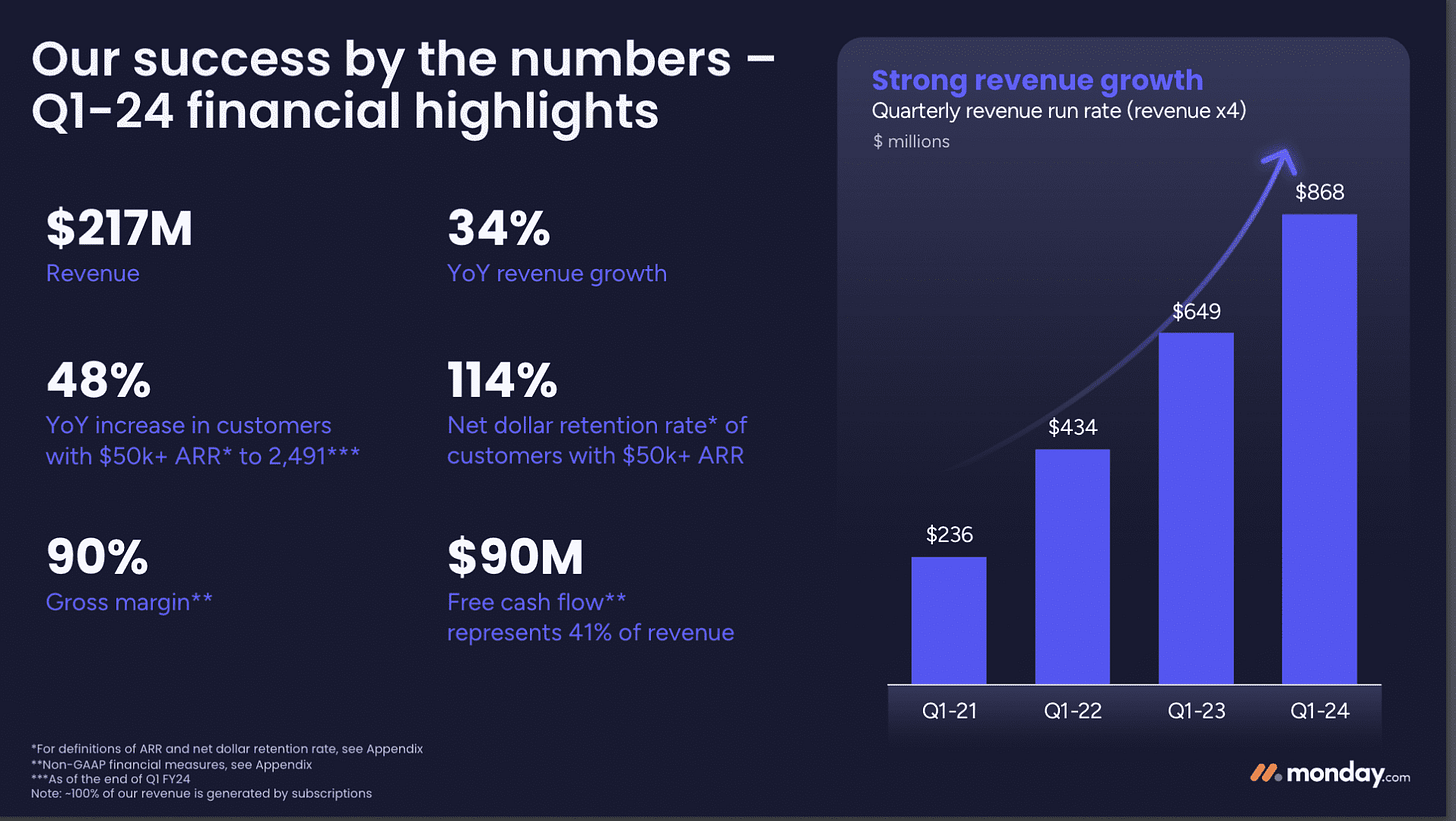From 2 engineers who didn't enjoy selling..to $1bn ARR
Why monday.com is an anti-thesis to every SAAS startup advice
In the last few weeks, I have spoken to 38 SAAS founders (as part of my idea discovery call / more on that later) and if I have to sum up SAAS advice from all, it will be:
Sell to Enterprises.
Avoid SMB.
Mid-market? That's for losers.Sell to Enterprises. DO NOT EVEN THINK OTHERWISE
This is the standard playbook followed by most (Indian) SAAS startups - they start with mid-market focus, get some traction (+funding) and then pivot to enterprise segment, i.e. sales-heavy and NOT AT ALL product-focused.
What about monday.com?
For the starters, monday.com is a work productivity platform that allows organizations to customize their work management tools (be it project management or CRM etc).
What's interesting about Monday is that it is at $1Bn ARR with majority of customers coming from SMB space, which is a very different take on SAAS space (where everyone is selling to enterprises).
There are some points that need to be highlighted :
Customer growth
In the times we are in, most SAAS companies are struggling to grow their customer base. But not Monday - they are growing at 20% annually, even at 225K+ customer base.
SMB rocks
22% of monday's customers are still very small — less than 10 users.
10+ Seat Customers Are 78% of Revenue
20% are now $100k+ deals
This is a completely different take on SAAS - most of the saas businesses eventually end up serving the enterprise space and Monday is all-in on SMB.
What's the secret? Apart from the fact that monday is a consumer grade product and they focused on non-tech customer segments, the founders are clear about one thing - that they are engineers and aren't the best sales people.
And this translates to building better products and solving for customer's JTBD (rather than dancing to the standard SAAS-y tunes, i.e. ditch the SMB and sell to enterprises).
In fact, as one of the analysts pointed out - monday is few of those companies making money using AI (without screaming AI..AI) - by the virtue of their focus on solving customer’s problems.
I went down the monday's rabbit hole - so sharing big ideas I curated from the latest interview of Eran Zinman, co-founder and co-CEO of monday (with Jason Lemkin)
Not all product-market fits are equal: Eran Zinman
Performance Marketing Mastery
monday.com's growth has been heavily driven by efficient performance marketing (FB ads worked very well in the early days and helped them reach the non-tech segment). They meticulously track the cash flow from marketing spend to customer payments, allowing them to reinvest quickly and scale rapidly. This approach enabled them to spend far more on marketing than their initial capital would suggest.
Performance marketing is a powerful tool when used correctly. Track every dollar spent and received to optimize campaigns and maximize ROI. This data-driven approach allows for confident scaling and efficient growth.
Multi-Vertical Strategy
monday.com's flexibility allowed it to expand into various non-tech industries, providing resilience against sector-specific downturns. This diversification has been crucial to their consistent growth, with 70% of customers coming from non-tech sectors.
Expanding into multiple verticals can provide significant growth opportunities and risk mitigation. Look for ways your product can serve diverse industries and tailor your marketing accordingly.
Cash Flow Focus
The company prioritized cash flow efficiency from day one, measuring the time between cash spent on marketing and cash received from customers. This focus on cash, rather than traditional SaaS metrics like LTV and CAC, allowed for more accurate and actionable insights.
Prioritize cash flow metrics over traditional SaaS KPIs. Understanding the real cash cycle of your business can lead to more efficient operations and faster growth.
Product Flexibility and Gradual Discovery
monday.com's platform allows customers to customize their experience, reducing feature requests and support needs. They focus on providing immediate value and gradually introducing more complex features as customers grow.
Design your product for flexibility and customization. This approach can reduce support costs and increase customer satisfaction.
Introduce advanced features gradually to avoid overwhelming new users.
Efficient Growth Model
Despite rapid growth, monday.com has maintained strong cash flow efficiency. They achieved this by optimizing operations, focusing on what works, and being willing to cut inefficient initiatives.
Strive for efficient growth rather than growth at all costs. Regularly assess and optimize your operations, and be willing to cut initiatives that aren't delivering results.
*notes curated from SaaStr and marketwatch website




